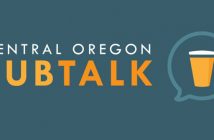After a decade of service in
Since NWAF’s initial investment, The Partnership’s efforts have been focused on breaking the cycle of poverty by helping individuals and families gain self-sufficiency through workforce and education, asset development, leadership and capacity building, and public policy. Important initiatives will survive the closure, including: Mosaic Medical, Cascades East Transit, Project Connect, Project Mobile Connect, the Faith Based Networks, the Earned Income Tax Credit program and Open Campus.
“Our lasting legacy is that we helped to create new infrastructure that supports low-income families in our region. Mosaic Medical is a perfect example. The clinic started out with a dozen employees and a few hundred patients in Prineville. Now it’s a regional clinic with 150 employees and 17,000 patients,” explained Jason Carr, executive director of The Partnership.
NWAF announced a few years ago that it would officially end its yearly funding. This came as no surprise to Partnership leaders and the board who made the decision to dissolve the organization by the end of this year. The Partnership has accomplished what it was commissioned to do, and will exit
“Our relationship with NWAF was designed to be a short-term investment, so The Partnership always had a shelf-life. We knew this would be our last year in operation, but we say good-bye knowing our efforts have clearly made a difference,” said Cyndy Cook, Housing Works executive director and Partnership board chair.
From 2008-2011 $1.5 million in direct resources leveraged over $21 million in new investment, infrastructure, and capacity to provide economic revitalization for people living in poverty. The Partnership will operate as usual throughout the remainder of 2013, and is actively working on projects that will have long-lasting impacts on poverty reduction in
“Using outside dollars to make investments in community development has a powerful multiplier effect on the economy. It’s unlikely the efforts of The Partnership would have happened without the resources provided by NWAF,” explained Carr.




